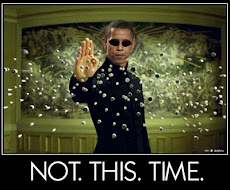Friday, August 31, 2012
Tuesday, August 28, 2012
Saturday, August 25, 2012
Black August
Ms Autumn Marie: What is Black August? Why is it Important?
Source: Year of the Blacksmith
By Ms Autumn Marie
The term Black August has become synonymous with hip-hop concerts and various festivals across the country namely in New York, Oakland, Atlanta, L.A. and Chicago. However, the idea and meaning of Black August goes much deeper than any singular celebration. In the same way that February is recognized as Black History Month, Black August is a month long observation honoring Black people and events that have contributed to the freedom and liberation of Afrikan people. It is a tradition that involves community building, fasting, physical training, reading/studying, reflection, and self-discipline. Started in the prisons, Black August has grown to be respected and practiced by thousands beyond the walls.
“August,” as Mumia Abu-Jamal noted, “is a month of meaning, of repression and radical resistance, of injustice and divine justice; of repression and righteous rebellion; of individual and collective efforts to free the slaves and break the chains that bind us.”
BLACK AUGUST (Documentary Trailer)
Common, Mos Def, & Talib Kweli Performing at the 10th Annual Black August Hip Hop Benefit in NYC
THE ORIGINS OF BLACK AUGUST
Black August originated in the prisons of California to honor fallen Freedom Fighters, Jonathan Jackson, George Jackson, William Christmas, James McClain and Khatari Gaulden. Jonathan Jackson was gunned down outside the Marin County California courthouse on August 7, 1970 as he attempted to liberate three imprisoned Black Liberation Fighters: James McClain, William Christmas and Ruchell Magee.
Ruchell Magee is the sole survivor of that armed rebellion. He is the former co-defendant of Angela Davis and has been locked down for 40 years, most of it in solitary confinement.
George Jackson was assassinated by prison guards during a Black prison rebellion at San Quentin on August 21, 1971. Three prison guards were also killed during that rebellion and prison officials charged six Black and Latino prisoners with the death of those guards.
These six brothers became known as the San Quentin Six. To honor these fallen soldiers the brothers who participated in the collective founding of Black August wore black armbands on their left arm and studied revolutionary works, focusing on the works of George Jackson.
In the month of August the brothers did not listen to the radio or watch television. Additionally, they didn’t eat or drink anything from sun-up to sundown; and loud and boastful behavior was not allowed. The brothers did not support the prison’s canteen. The use of drugs and alcoholic beverages was prohibited and the brothers held daily exercises because during Black August emphasis is placed on sacrifice, fortitude and discipline.
Black August is a time to embrace the principles of unity, self-sacrifice, political education, physical training and resistance.
The tradition of fasting during Black August teaches self-discipline. A conscious fast is in effect FROM SUNRISE TO SUNSET (or suggested from 6:00 am to 8:00 pm), this includes refraining from drinking water or liquids and eating food of any kind during that period. Some other personal sacrifice can be made as well. The sundown meal is traditionally shared whenever possible among comrades. On August 31, a People’s Feast is held and the fast is broken. Black August fasting should serve as a constant reminder of the conditions our people have faced and still confront. Fasting is uncomfortable at times, but it is helpful to remember all those who have come and gone before us, Ni Nkan Mase, if we stand tall, it is because we stand on the shoulders of many ancestors.
BLACK AUGUST DATES:
August 1619 – Arrival of first African slaves in 13 colonies
August 21, 1791 – Haiti slave uprising for independence
August 30, 1800 – Gabriel Prosser’s slave revolt discovered
August 21, 1831 – Nat Turner’s slave rebellion
August 1850 – Underground Railroad
August 17, 1887 – Birth of Marcus Garvey
August 24, 1943 – Birth of Russell “Maroon” Shoatz
August 30, 1948 – Birth of Fred Hampton
August 8, 1949 – Birth of Dr. Mutulu Shakur
August 1963 – March on Washington
August 1965 – Watts Rebellion
August 25, 1967 – FBI circulates internal order to “disrupt” Black Liberation groups
August 7, 1970 – Courthouse Slave Rebellion
August 18, 1971 – Capital of Republic of New Afrika attacked by FBI and police
August 21, 1971 – Assasination of George Jackson
August 28, 1971 – Jalil Muntaqim and Nuh Washington captured
August 8, 1978 – Police raid on MOVE
August 17, 1995 – Mumia scheduled for execution; stopped by resistance
BLACK AUGUST DOCUMENTARY BY DREAM HAMPTON (2010)
The Movie about George and Jonathan Jackson
Black August 1 of 10
Black August 2 of 10
Black August 3 of 10
Black August 4 of 10
Black August 5 of 10
Black August 6 of 10
Black August 7 of 10
Black August 8 of 10
Black August 9 of 10
Black August 10 of 10
Thursday, August 23, 2012
Tuesday, August 21, 2012
Monday, August 20, 2012
Sunday, August 19, 2012
Gil Scott-Heron "Home Is Where The Hatred Is" (1971)
Heron's father Gil Heron (1922 - 27 November, 2008) was a Jamaican footballer/soccer player. He was the first black player to play for Scottish club Celtic FC after being invited on a trial in 1951. Heron went on to score on his debut, on August 18, 1951 in a League Cup tie against Morton that Celtic won 2-0.
Home Is Where the Hatred Is" is taken from the 1971 album "Pieces of a Man". It is a melodic, somber composition of the narrator's dangerous and hopeless environment, presumably of the ghetto, and how its effects take a toll on him. Scott-Heron's lyrics demonstrate these themes of social disillusionment and hopelessness in the first verse and the chorus:


































